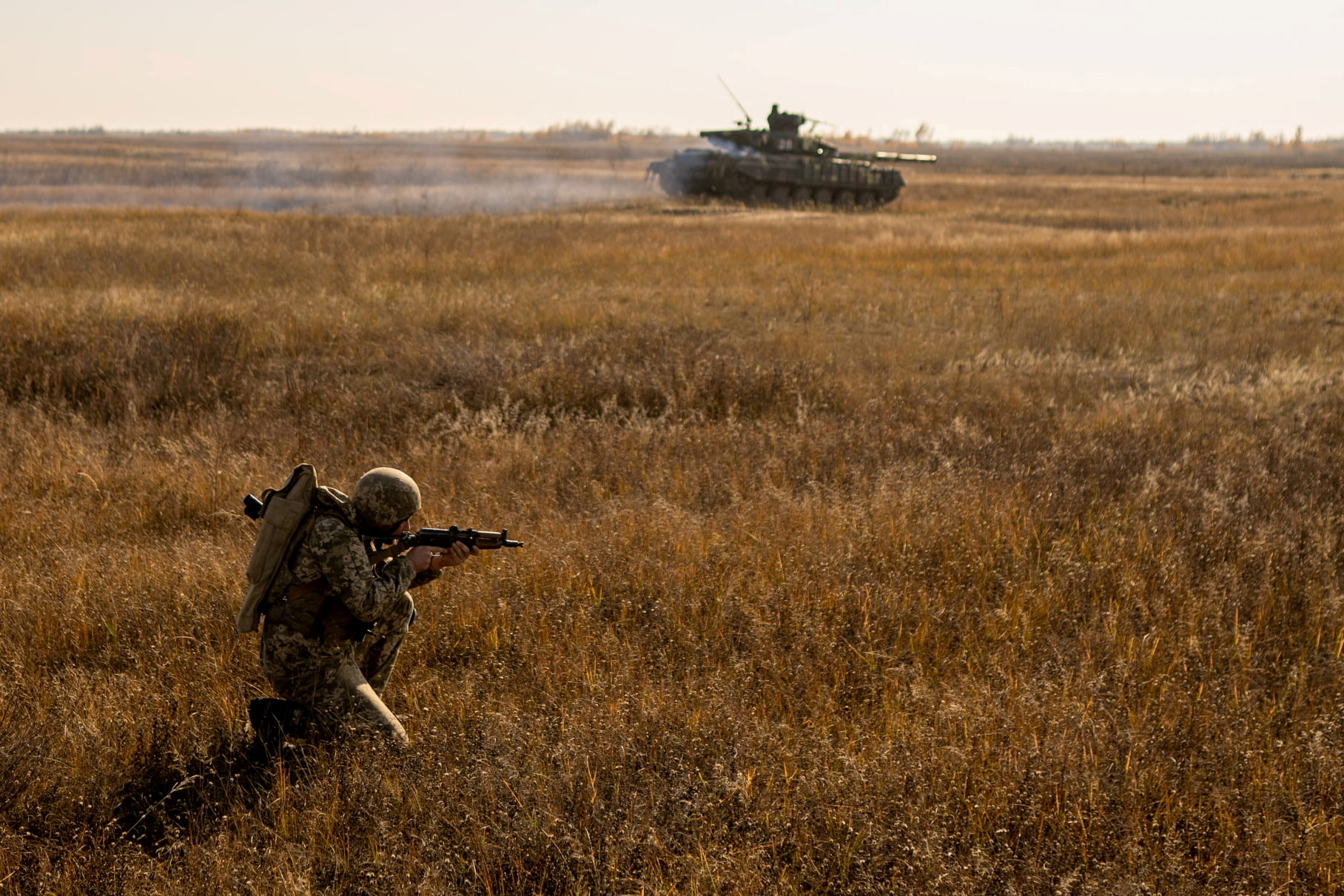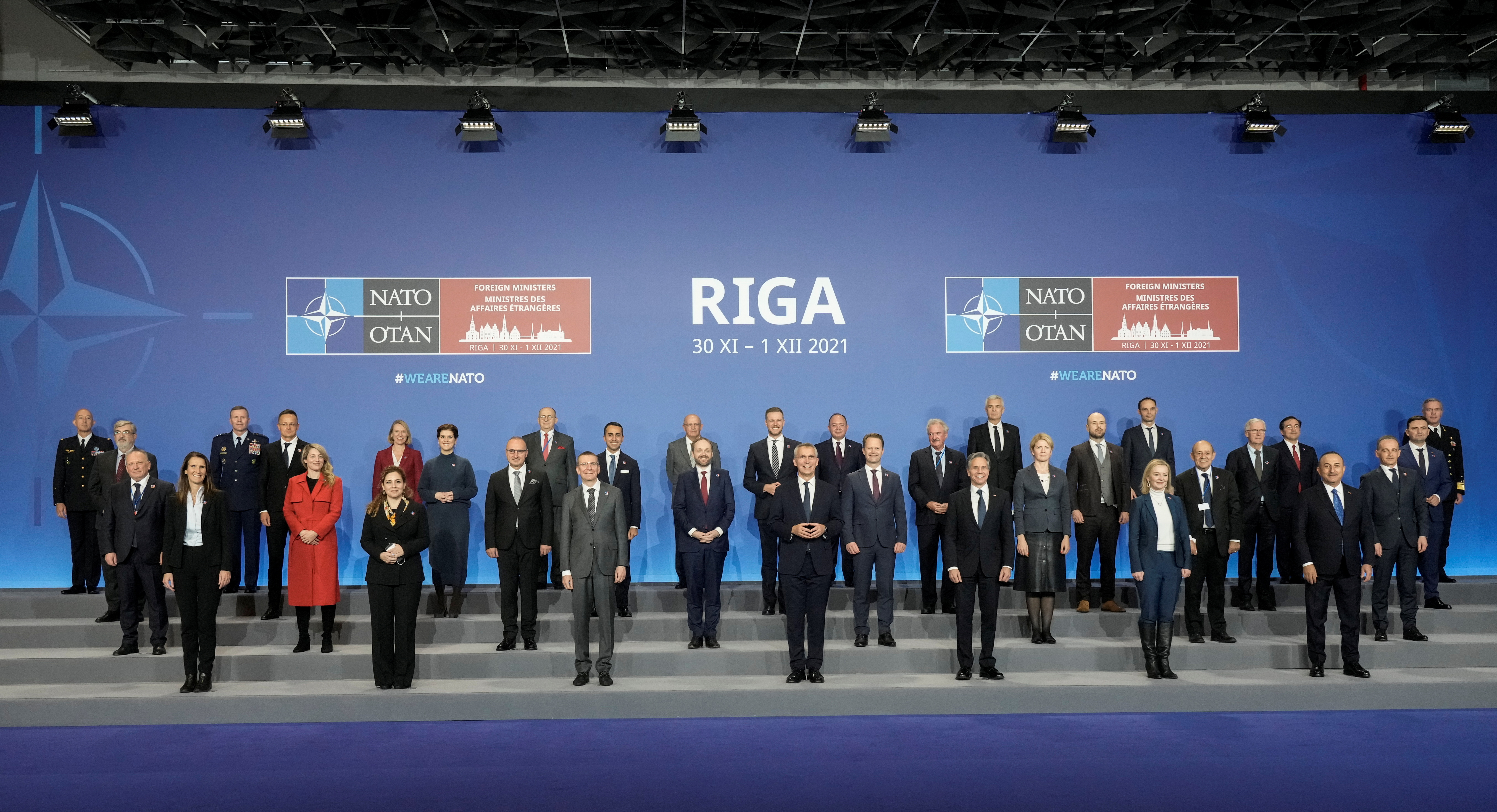Disagreeably Agreeing to Disagree
"We don't know whether President [Vladimir] Putin has made the decision to invade. We do know that he is putting in place the capacity to do so on short order should he so decide.""Should Russia follow the path of confrontation, when it comes to Ukraine, we've made clear that we will respond resolutely including with a range of high impact economic measures that we have refrained from pursuing in the past."U.S. Secretary of State Antony Blinken"Our recent warnings have indeed been heard and are having a certain effect: tensions have risen there [NATO-U.S.].""It is important for them to remain in this state for as long as possible, so that it does not occur to them to stage some kind of conflict on our western frontiers that we do not need."Russian President Vladimir Putin
 |
"I would like again to officially state that Ukraine does not plan any military offensive in Donbass.""This is Russian propaganda nonsense in order to cover up Russia's own preparations for a potential attack."Ukrainian Foreign Minister Dmytro Kuleba"[Stability and predictability mean] less American meddling in our domestic affairs, with less attempts by the U.S. to limit our completely legal and legitimate interaction with our friends, allies and partners all over the globe."Sergey A. Ryabkov, Russian Deputy Foreign Minister
Mr. Putin's end game: for Asta Skaisgiryte, foreign policy adviser to Lithuania's president, there is a simple answer: "To restore the Soviet Union". That's a given. Well enough understood by Mr. Putin's statement of profound regret that Greater Russia is simply that, no longer the Soviet Union, its hegemonic tentacles tightly gripping its neighbours' sovereignty as Moscow's own. Time and the tides provides no answer for Mr. Putin for he plans his legacy as the restorer of what once was; if subtle persuasion won't do it, violent aggression will.
For Mr. Putin, Russia's near-abroad is Russian hegemonic territory. The encroaching presence of NATO in support of Baltic states cringing at the very prospect of once again being caught in a Soviet-style ambit represents their living nightmare. That they have the support of the United States extending to NATO and its member-states is their assurance that they won't go into that dark night of Russia's grasp whimpering helplessly. They have Western champions.
To the Kremlin, to Mr. Putin, the presence of Western troops under the NATO aegis in Russia's area of disputed control is a major threat. They have no business in eastern Europe, it is Russia's bailiwick. And if Russia feels like reminding its neighbours of how good their lives were once as part and parcel of the USSR, that's Russia's business. The buildup of Russian troops beside Ukraine is a statement of regional power, not defiance, but a promise of what could unfold and may yet.
 |
| A serviceman of the Ukrainian Armed Forces takes part in military drills at a training ground near the border with Russian-annexed Crimea in Kherson region, Ukraine, in this handout picture released by the General Staff of the Armed Forces of Ukraine press service November 17, 2021. via REUTERS |
The volatile situation is not Russia's fault but that of NATO and the United States daring Russia to take another step further to claim its historical patrimony. From the Baltic to the Black Sea competition for influence amidst a threat of an emerging potential for military conflict is seething. Russian long-range nuclear bombers flew patrols repeatedly near the border of the European Union with Poland. Leaving Western intelligence warning the Kremlin could be planing groundwork for another invasion of Ukraine.
Last month Mr. Putin made clear his use of the Russian military to bring the West to a respectful attitude toward Russian interests in the region, and succeeding. It is now known in the Western halls of power that Russia is serious it will defend its 'red lines'; NATO has no business being present near its borders. The Belarusian gambit of creating friction by massing Syrian refugees on the border with Poland as punishment for the EU's interference in the after-effects of the Belarus election is generally viewed as another irritation engineered by Mr. Putin. Ditto the energy crunch in supplying natural gas to Western Europe.
 |
| Belarusian President Alyaksandr Lukashenka (center) attends a meeting on territorial defense issues in the town of Shklov in June with Defense Minister Viktar Khrenin (left). |
Despite repelling challenges to his presidency from opposition groups, imprisoning those whose campaigns prove too inconvenient as an alternative to assassination or forcing others into exile, Mr. Putin rests easy in an approval rating above 60 percent, making him indisputably a more popular leader than most Western-based leaders. Russia may be suffering a dreadful COVID toll, but the United Russia party saw victory in its September parliamentary elections, and Mr. Putin has established himself as President-for-life. Changing the country's constitution proved so popular that other dictators have followed suit.
It is, however, the possibility that the West will continue its incursion, expanding a military presence in post-Soviet Eastern Europe where Latvia, Estonia and Lithuania have become NATO members satisfied with their bonus of hosting Western troops; too close for Mr. Putin's comfort. In September the Kremlin stated that the "broadening of NATO infrastructure on Ukrainian territory" would cross one of Russia's red lines. Recent military activity by the U.S. and its NATO allies in the Black Sea region near Ukraine has served to further infuriate Russia.
 |
| NATO Secretary General Jens Stoltenberg poses with foreign ministers for a family photo during a NATO Foreign Ministers summit in Riga, Latvia November 30, 2021. REUTERS/Ints Kalnins |
"President Putin has come to the conclusion that normal diplomatic channels, means, forms and methods are not working.""The situation is, potentially, a rather bad one."Dmitri Trenin, head, Carnegie Moscow Center think tank
Labels: Baltic States, NATO, Russia, Russian Aggression, Ukraine, United States, Vladimir Putin
0 Comments:
Post a Comment
<< Home